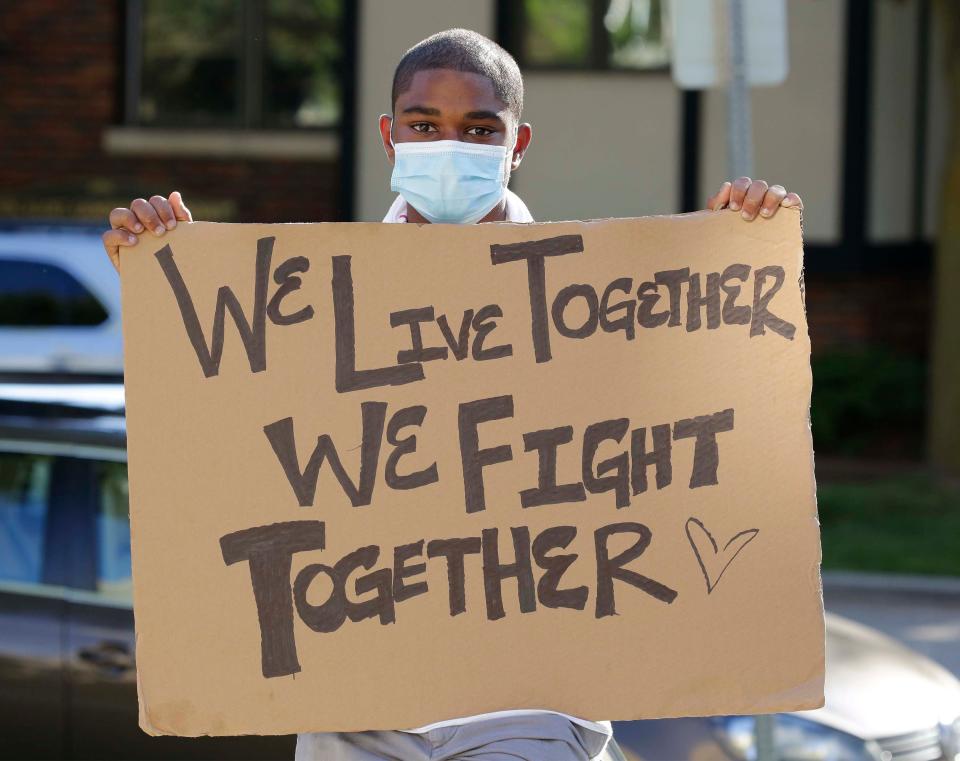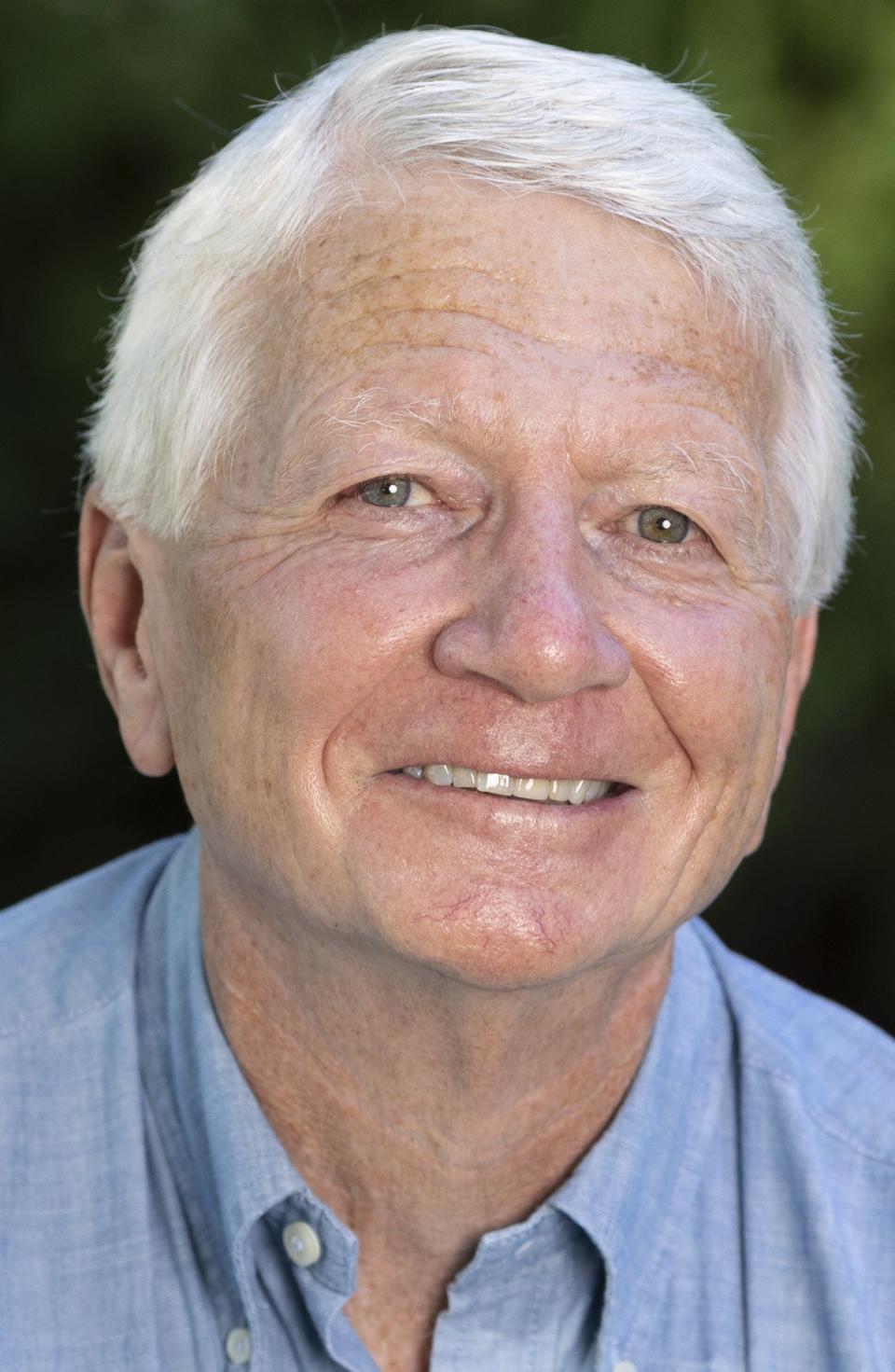Unity is a winning strategy. As we head into the 2024 election, more of us should try it.
The 2024 presidential election is already shaping into yet another struggle for the soul of America. It’s a fight we cannot win unless we bring more people together in an effort to reduce the hyperpolarization that plagues our political life.
Fortunately, data gleaned from surveys of American attitudes suggests reason for hope, even if the effort won’t be easy.
Polarization is a political problem, sure. But it is also a social one – and worse, it has become self-fulfilling. We read and hear about it in the media. Our political leaders decry it, often while figuring out how to take advantage of it. The result is ever more inflammatory rhetoric that drives away those of us who lack ideological fervor, which is to say most of us.
Those moderates who withdraw from political discourse effectively cede the national dialogue to the most passionate ideologues, whose views predominate and make the whole situation seem worse than it is. This is what social scientists call "false polarization." In other words, the problem is not so much the polarization of everyday Americans but the rise of extremists who make moderates turn their backs on the process.
One measure of our collective political disaffection: For more than a half-century, the Harris Poll has maintained an Alienation Index measuring civic disaffection. When it debuted in 1966, it stood at 29 on a 100-point scale (where 100 is maximally alienated). Our most recent survey put the figure at 66.
Polarization has numerous interrelated and often-nuanced causes and exacerbating factors: ideological sorting, the rise of social media and partisan gerrymandering to name a few. It has snowballed into a national sociopolitical miasma of tribalism run amok.

What is right with America
As The New Yorker’s Elizabeth Kolbert put it in 2021: “Increasingly Washington politics – and also Albany, Madison and Tallahassee politics – have been reduced to 'us' versus 'them,' that most basic (and dangerous) of human dynamics.”
This narrative is so embedded in our belief system that those at the forefront of public discussion refuse to acknowledge, much less embrace, anything that runs counter to it. But as Bill Clinton, whose presidency was both a harbinger of polarization and, to some, a last moment of bipartisan cooperation, said in his first inaugural address: “There is nothing wrong with America that cannot be cured by what is right with America.”
A farm boy's guide to unity: America's rural-urban divide is real, but it can be bridged
What is right with America? Despite the perception and reality of disaffection and polarization, most of us believe we are in this together.
In extensive polling done by Our Common Purpose, an initiative dedicated to diminishing polarization, most respondents do not speak in terms of "us" versus "them." Instead, they speak of “we.” What we need to do. What we can achieve if we try.

Our Common Purpose has identified a set of 10 broad-based aspirations for the nation, purposely written to bridge the divide, that win supermajority levels of support in a series of nationwide surveys. For example, “equal rights for all, responsibilities for all” draws strong agreement from equally large percentages of Republicans and Democrats by suggesting that with rights come obligations.
The 10 statements are only starting points for deeper discussions, but they show what can happen if we actively set out to balance viewpoints.
Opinion alerts: Get columns from your favorite columnists + expert analysis on top issues, delivered straight to your device through the USA TODAY app. Don't have the app? Download it for free from your app store.
Before being Republican or Democrat, we're American
The Harris Poll recently produced similar results in its new Connection Index: Where the Alienation Index measures disaffection from those in power, the new measure gauges how Americans relate to each other.
The Connection Index started at 63 (out of 100), with supermajorities reporting that they can see good in those with whom they disagree and that they have friends with differing political views.
Our 10 most-read columns in 2023: Trump was indicted, Biden is old, but all you cared about was Florida State's snub from College Football Playoff
These results align with the recommendations of Rachel Kleinfeld, with the Carnegie Endowment for International Peace, in her recent, exhaustive study of polarization: “Multiple studies suggested that efforts to create a 'superordinate identity,' or a common, overarching identity, could reduce affective polarization.”
You’ve heard this before, but we need to remind ourselves that before being Republican or Democrat, we’re American.

Ample polling from both our organizations suggests that most Americans are readily capable of – and would profoundly welcome – just that. But turning wish into reality will take more than idly standing by waiting for something better to come along. It will take real work, intentionality and determination to balance viewpoints and move forward.
We can help usher this along by collectively raising our voice in a fierce and continual critique of political extremists and their methods. The cause of unity will require political leaders and candidates who are stout enough to rise above all-out partisanship to find ways to work together.
That’s what Americans yearn to see.
Will Johnson is CEO of The Harris Poll, a global public opinion, market research and strategy firm. Richard H. Gilman, a career newspaperman, is founder of the Our Common Purpose initiative.
You can read diverse opinions from our Board of Contributors and other writers on the Opinion front page, on Twitter @usatodayopinion and in our daily Opinion newsletter.
This article originally appeared on USA TODAY: Not us vs. them: How Republicans and Democrats can unite ahead of 2024

